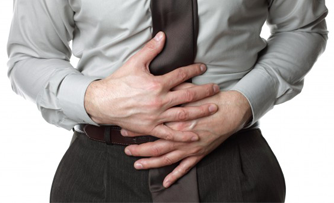Popular Articles
- Thyax Supplement Facts
- Best Supplements for Thyroid Deficiency
- Alternatives to Synthroid
- Losing Weight Might Be Hard With Low Levels of This...
- Thyroid Health - Natural Ways to Boost an Underactive Thyroid
- Armour Thyroid Review: Drug for Underactive Thyroid
- Low T3 and T4 Levels? Boost it: Heres How...
- Thyroid Health | The Best Vitamins for Hypothyroidism
- Ginger and Weight Loss
- Best Weight Loss Supplements for Men and Women
- More Articles ...
 Levoxyl Side EffectsIn This Article
Levoxyl is a drug prescribed for hypothyroidism. Like other medication, it can cause side effects which are very important to consider before taking the drug.
Levoxyl is a drug prescribed for patients suffering from hypothyroidism. The main component of the drug is levothyroxine. Levothyroxine is a synthetic replacement for thyroxine, which is the hormone normally produced by the thyroid gland. Thyroxine is an important hormone that controls the body’s energy consumption and metabolism. During hypothyroidism, the thyroid gland does not produce enough of the thyroid hormone, causing an imbalance in the body which leads to plenty of unwanted symptoms. Thus, Levoxyl is prescribed in order to augment the lack thyroxine in the body and maintain a proper balance of thyroid hormone in the body. Like other prescription medications, Levoxyl also has its own share of side effects. Levoxyl side effects are quite rare with majority of the users reporting no or very little side effects while on medication. Still, it is important to take note of these side effects in case something rare happens, so it can be acted on right away. General Side Effects
These side effects are quite common for a lot of prescription medication and are even common symptoms for a lot of health conditions. While they are not necessarily dangerous, they are worth looking at especially if you are regularly taking Levoxyl. More Specific Side EffectsLevoxyl can also produce more specific side effects that target various parts and systems of the body.
These symptoms are usually caused by over-replacement or taking too much of the medication. Inadequate intake of levothyroxine on the other hand, will fail to stabilize hormone levels and will result to recurring hypothyroidism symptoms.
|
| Symptoms of Hypersensitivity |
| Urticaria |
| Skin Rash |
| Flushing |
| Wheezing |
| Nausea |
| Swelling of the face, mouth and throat |
Some Important Considerations
Because levothyroxine is a synthetic version of the thyroid hormone, everybody can basically take Levoxyl.
However, some precautions should be taken for individuals with history of heart attack or other heart diseases, anemia, pituitary and adrenal gland problems and thyrotoxicosis. It is important to let your doctor know in case you have or have had these conditions before starting the treatment.
Likewise, it is important to let your doctor know if you are diabetic and are taking insulin or diabetes medication.
The intake of Levoxyl can also counteract the effects of some medications and drugs. Thus, you should inform your doctor of all medications and drugs that you regularly take, regardless of the brand or purpose.
It is good to remember that different brands of levothyroxine work differently, hence you should use other medication to substitute Levoxyl or the other way around.
Lastly, you should keep in mind that the effects of Levoxyl take weeks to manifest, so it may take time before the symptoms of hypothyroidism start to dissipate.
Once you start feeling better, do not stop taking the drug immediately. Even if you feel better, you will still need to replace the thyroid hormone which your body cannot produce, so you may still need to take the medicine continuously for the rest of your life.





 General side effects associated with the intake of Levoxyl include:
General side effects associated with the intake of Levoxyl include: Musculoskeletal System: muscle weakness and tremors
Musculoskeletal System: muscle weakness and tremors Hypersensitivity
Hypersensitivity